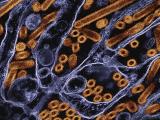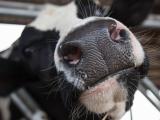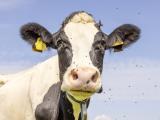May 13, 2013
China reports two more H7N9 deaths
China reported 2 more deaths from H7N9 influenza in previously confirmed cases, raising the total to 35, Xinhua, China's state news agency, reported today. The number comes from the country's National Health and Planning Commission, which did not give any details about the patients' ages or locations. One of the fatalaties appears to be in an 83-year-old woman from Shanghai who died a month after her infection was confirmed, according to a report yesterday in the Shanghai Daily. In other developments, China's government today announced $96.77 million in grant subsidies to support the poultry industry in the wake of the H7N9 outbreak, according to a separate report from Xinhua today. Poultry producers will receive short-term subsidized loans, and the government is encouraging financial institutions to offer credit to breeders and companies. Agriculture officials project that the industry has lost $6.5 billion since the outbreak began.
May 13 Xinhua story on H7N9 patients
May 12 Shanghai Daily report
May 13 Xinhua story on poultry subsidies
North Korea, Tibet report H5N1 outbreaks
Animal health officials in North Korea and Tibet announced H5N1 avian flu outbreaks in poultry, according to reports today from the World Organization for Animal Health (OIE). North Korea's outbreak began on Apr 19 at a commercial duck farm near Pyongyang. The virus affected an unspecified number of adults, fattening ducks, and ducklings. Authorities destroyed all 164,000 of the farm's birds to curb the spread of the virus. The report said the source of the virus is not known, but it could have been transmitted to the ducks through contact with wild species. The event appears to be North Korea's first H5N1 outbreak reported to the OIE.
May 13 OIE report on North Korea outbreak
In Tibet, H5N1 struck geese and chickens in the village of Qionglin, starting on May 13. The virus killed 35 birds, and 372 more were culled to control disease spread. Tibet's last H5N1 outbreak occurred in October 2012.
May 13 OIE report on Tibet outbreak
Tests identify H9N2 in British turkey farm outbreak
An avian influenza outbreak that hit a turkey farm in England's Suffolk county has been identified as the H9N2 strain in tests by the Department for Environment, Food, and Rural Affairs (DEFRA), the BBC reported today. On Apr 17 DEFRA said initial tests had ruled out H5 and H7 strains and the site was under restrictions pending further investigations. DEFRA said the virus poses a low risk to the public, the birds have recovered, and restrictions have been lifted, according to the report. The H9N2 subtype has been found in many avian species in Asia, the Middle East, Europe, and Africa in the past decade. It can cause mild-to-moderate disease in humans.
May 13 BBC report
Apr 17 DEFRA statement



















